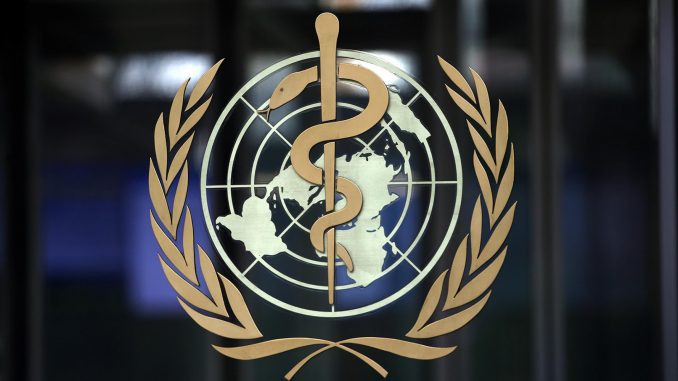
The ninth meeting of the Emergency Committee convened by the WHO Director-General under the International Health Regulations (2005) (IHR) regarding the coronavirus disease (COVID-19) pandemic took place on Friday 22 October 2021
The committee discussed key issues including:
- SARS-CoV-2 surveillance efforts and challenges;
- immunity acquired through natural infection or vaccination and protection offered by both;
- the value of intra-action reviews for States Parties to inform and enhance response efforts; and
- the importance of maintaining risk-informed and multi-faceted PHSM.
The Director-General determined that the COVID-19 pandemic continues to constitute a PHEIC. He accepted the advice of the Committee and issued the Committee’s advice to States Parties as Temporary Recommendations under the IHR.
The Emergency Committee will be reconvened within three months or earlier, at the discretion of the Director-General. The Director-General thanked the Committee for its work.
Temporary Recommendations to States Parties:
While the Committee noted that there are nuances associated with diverse regional contexts related to the implementation of the Temporary Recommendations, they identified the following as critical for all countries:
1. MODIFIED: Continue to use evidence-informed Public Health and Social Measures (PHSM) and life-saving tools such as WHO recommended therapeutics, diagnostics, and vaccines for COVID-19.
States Parties are advised to regularly adjust their response strategies by monitoring their epidemiological situation, assessing their vulnerabilities including their health system capacity, as well as considering the adherence to and attributable impact of individual and combined PHSM. The use of masks, physical distancing, hand hygiene, and improving ventilation of indoor spaces remain key to reducing transmission of SARS CoV-2. The use of established PHSM in response to individual cases or clusters of cases, including contact tracing, quarantine and isolation, must continue to be adapted to the epidemiological and social context and enforced. Link to WHO guidance
2. MODIFIED: Take a risk-based approach to mass gathering events by evaluating, mitigating, and communicating risks. Recognizing that there are different drivers and risk tolerance for mass gatherings and mass migrations, it is critical to consider the epidemiological context (including the prevalence of variants of concern, the strength of transmission, as well as contact tracing and testing capacity) when conducting this risk assessment in line with WHO guidance. In particular, fragile and vulnerable States Parties need additional support to address the challenges posed by conflicts, mass migration, or unplanned mass gatherings during the COVID-19 pandemic. Link to WHO guidance
3. MODIFIED: Achieve the WHO call to action to have at least 40% of all countries’ populations vaccinated by the end of 2021.
Increased global solidarity and production capacity is needed to protect vulnerable populations from the emergence and spread of SARS CoV-2 variants. States Parties are requested to share doses to increase global vaccine equity and to use a step-wise approach to vaccination, in accordance with advice from SAGE. Vaccination programmes should include vulnerable populations, including sea farers and air crews. To enhance vaccine uptake, States Parties are encouraged to assess enablers and barriers to vaccination. Link to WHO SAGE Prioritization Roadmap and SAGE Interim Statement on Booster Doses for COVID-19 Vaccination
4. MODIFIED: Enhance surveillance of SARS-CoV-2 and continue to report to WHO to enable rapid identification, tracking, and evaluation of variants and continued monitoring of the pandemic’s evolution and its control. States Parties are encouraged to strengthen their surveillance systems by implementing a dual-pronged approach for acute event and molecular surveillance strategies, including timely and representative genomic surveillance data. States Parties should leverage existing national, regional, and global networks, such as the Global Influenza Surveillance and Response System, for SARS-CoV-2 surveillance. Link to WHO guidance
5. EXTENDED: Maintain essential health services with sufficient funding, supplies, and human resources; strengthen health systems to cope with mental health impacts of the pandemic in adults and children, concurrent disease outbreaks, and other emergencies. Link to WHO position paper
6. EXTENDED: Continue a risk-based approach to facilitate international travel and share information with WHO on use of travel measures and their public health rationale.
In accordance with the IHR, measures (e.g. masking, testing, isolation/quarantine, and vaccination) should be based on risk assessments, consider local circumstances, and avoid placing the financial burden on international travellers in accordance with Article 40 of the IHR. Link to WHO guidance
7. EXTENDED: Do NOT require proof of vaccination against COVID-19 for international travel as the only pathway or condition permitting international travel given limited global access and inequitable distribution of COVID-19 vaccines. State Parties should consider a risk-based approach to the facilitation of international travel by lifting or modifying measures, such as testing and/or quarantine requirements, when appropriate, in accordance with the WHO guidance. Link to WHO interim position paper and Link to WHO guidance
8. MODIFIED: Recognize all vaccines that have received WHO Emergency Use Listing and all vaccine schedules as per SAGE recommendations, including in the context of international travel. Link to Explanation of WHO Emergency Use Listing and Link to WHO Emergency Use Listing
9. EXTENDED: Address community engagement and communications gaps at national and local levels to reduce COVID-19 transmission, counter misinformation, and improve COVID-19 vaccine acceptance, where applicable. This will require reinforcing messages that a comprehensive public health response is needed. Link to WHO risk communications resources
10. NEW: Support uptake of WHO recommended therapeutics by addressing increased accessibility and affordability. Local production and technology transfer can contribute to global equitable access to therapeutics.
News Source: World Health Organization
Note: The article was published on 26th October 2021